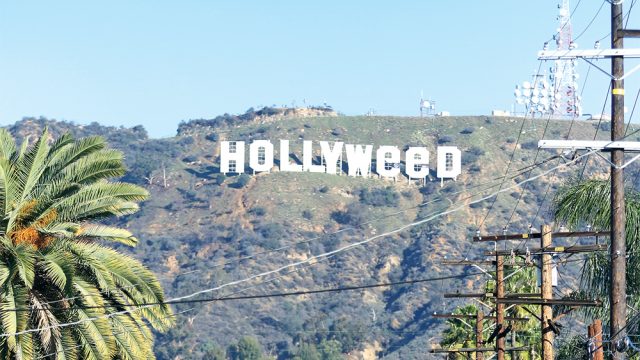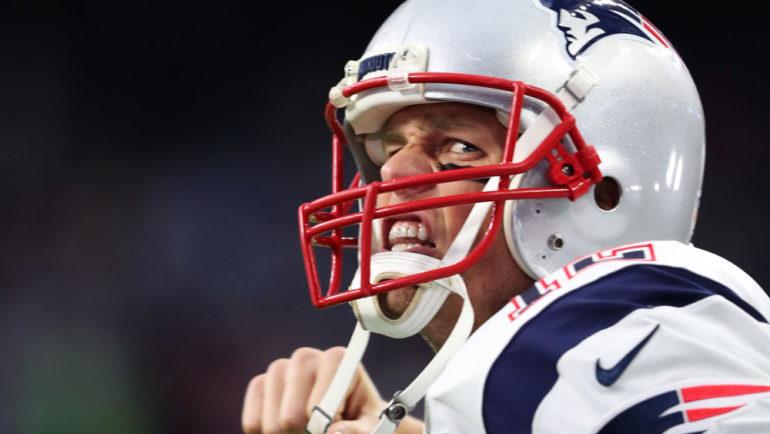Marijuana Advertiser Sees Super Bowl Dreams Go Up in Smoke
By Brian Steinberg LOS ANGELES (Variety.com) –
Acreage Holdings, a company that works to make marijuana available to adults for medical and/or recreational use where legal, is hoping to spark a haze of publicity by noting CBS declined to run a 60-second commercial it created to run in the network’s coming broadcast of Super Bowl LIII on Sunday February 3rd. The move is one of the latest in a series of promotional stunts various entrepreneurs have tried to enact around the Super Bowl each year.


“We put together a storyboard for an ad we planed on producing, ad we submitted it to the ad buying team at through a media partner of ours. Very quickly after we submitted, we received rejection, and it wasn’t wholly unexpected,” says Harris Damashek, the company’s chief marketing officer, in an interview.” Most U.S. TV networks do not as a matter of course accept ads for marijuana products at present, because federal laws do not allow the products to be sold in all parts of the United States.
“We definitely want to underscore the fact that we don’t begrudge CBS or the NFL in any way,” says Damashek. “They are just doing what they can and need to be doing to protect themselves.”
CBS declined to make executives available for comment. According to people familiar with the matter, however, CBS, NBCUniversal, Fox Broadcasting and Viacom are among the media companies that do not accept national ads for marijuana products. While some states have legalized marijuana used for medical purposes, federal law would prevent TV outlets from running national commercials. Some media companies do take marijuana ads on local stations, these people said.
Claiming a TV network has “rejected” a commercial that flouts standards and practices well known in the advertising community is a Super Bowl tradition. In years past, various websites and advocacy groups have taken to the media in the weeks leading to the event’s broadcast hoping to glean some recognition even though their commercials were too over-the-top to get on the air or blatantly disregards policies set by the National Football League, which has a big say over the broadcast. In 2012, for example, a dating site known as TheBigandTheBeautful.com claimed NBC wouldn’t put its Super Bowl ad on the air. The commercial included some risqué shots that are inappropriate for primetime broadcast. GoDaddy.com, a web-services company, generated attention before several Super Bowls by telling consumers its ads were considered too outlandish for primetime.
Such a maneuver doesn’t have to take place just around the Super Bowl. Last year, Planned Parenthood worked to generate attention for itself after an ad it hoped to run alongside Hulu’s “The Handmaid’s Tale” didn’t meet the video-streaming service’s standards for political advocacy advertising.
In some cases, the advertiser simply can’t afford the price required to run an ad in the Super Bowl and hopes for free publicity instead. CBS has been seeking between $5.1 million and $5.3 million for a Super Bowl ad package that includes 30-seconds of commercial time and some digital inventory, according to people familiar with negotiations.
Acreage Holdings isn’t a fly-by-night operation. Former U.S. Speaker of the House John Boehner sits on its board of directors and the company is publicly traded in Canada. Damashek said the company is still working on a the commercial it hoped to run in the big game, positioning it as a public service announcement that could run on national or local media outlets.
TV networks would no doubt like to get hooked on marijuana ads. Such commercials would represent a potential new stream of revenue at a time when traditional advertising has never been in more flux . Some of TV’s bedrock sponsors are in the midst of great change: Big retailers are consolidating or trimming operations as more consumers shop online. Automakers are poised for big changes as more drivers opt for ride-sharing services. Many of the era’s hottest start-up brands – Dollar Shave Club, Wayfair and others – got their start with digital advertising, not TV commercials.
One media company may be able to breathe in some marijuana fumes. AT&T’s Turner did not take any marijuana advertising in 2018, according to a person familiar with the matter. But the company, which operates TBS, TNT and CNN among other cable outlets, would consider on case-by-case basis putting some commercials about the topic on some of its networks, this person said. Commercials about investing in cannabis production could be considered, this person said, but not ads about cannabis products that are not legal for distribution across the U.S. Turner would not put any cannabis commercial on cable networks it operates that broadcast programming for kids, this person added.
Marijuana could become as robust a category as legalized sports betting, another area media companies are monitoring. As more states allow people to bet on sports, TV networks could start to feature a bevy of ads from betting services and platforms. An onslaught of ads from fantasy-sports sites DraftKing and FanDuel during the 2015-2016 football season showed the potential of betting as a potential revenue driver.
Cannabis is legal in 33 states, according to Acreage. Even if the company can’t advertise in the Super Bowl this year, CBS and other networks might just get a whiff of its potential.
